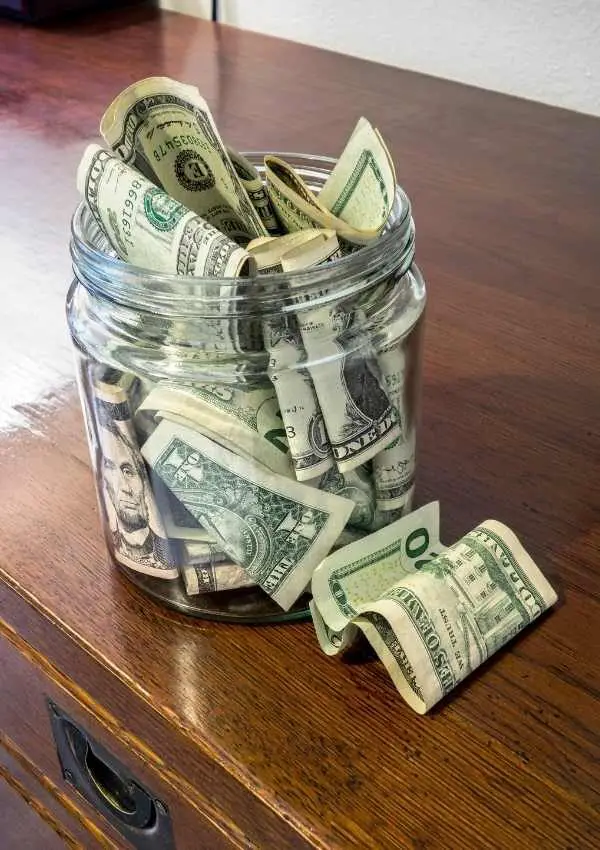We may earn money or products from the companies mentioned in this post.
Let’s be honest: Keeping track of your money is not exactly anyone’s favorite hobby. It’s not thrilling or exciting; it’s just a necessary evil that we all need to get through life.
The unfortunate truth is that it doesn’t matter how much money you make or how expensive your tastes are — if you can’t manage your finances, your bank account will reflect that sooner rather than later.
Money has the tendency to slip through our fingers like sand, and when unexpected expenses arise (or rent check after rent check, as is often the case for those living in cities like New York), it can be very easy to get into a tight spot with no obvious way out.
If you want to avoid ever being in that situation again, read on for some useful tips on how to become fiscally responsible…

Pay yourself first
When it comes to managing your finances, it’s important to have a plan of action and know how much you’re bringing in versus how much you’re spending. For many people, that means setting up a budget in a journal like this, and that’s certainly a good place to start.
The next step is to make sure you’re setting aside enough money to pay off any obligations you have, such as student loans, credit card debt, car payments, etc. If you’re not doing that, you’ll never be able to get ahead financially no matter how hard you try.
You need to pay yourself first. That means you should set aside a certain amount of money from each paycheck, no matter how small, and either put it in a savings account or use it to pay off any debts you have. If you do this, you’ll be in a much better place financially, since you won’t have any lingering obligations hanging over your head.
Know your spending habits
It’s impossible to spend less money if you don’t know how much you’re spending right now. So, before you can start trying to reduce your expenses, you need to figure out where all your money is going. You can do this by taking stock of all your monthly expenses, keeping track of your spending for a few weeks, or both.
Once you know where all your money is going, you can start trying to reduce your expenses in areas that aren’t essential. Sure, a daily $5 dollar coffee habit may seem inconsequential, but if you do that five times a week, you’re essentially wasting $25 per week, or $1,300 per year on coffee alone.
And if you have other expenses that are bigger than that, you need to make changes if you want to ever get ahead financially.
Be smart with your money
Are you the type of person who purchases everything on your credit card because you don’t have the money in your bank account to cover it? Do you make car payments for vehicles you don’t even own anymore? Do you have student loans that are so far beyond your original amount that you don’t even know how you’ll ever be able to pay them off?
If so, you need to be smarter with your money. Sure, it can be tempting to spend more than you make and just put the rest on a credit card, but there’s nothing smart about that. If you’re really trying to become financially responsible, you have to make smarter choices with your money.
This means paying off your debts as soon as possible, not purchasing things you know you can’t afford, and always having money in your bank account to cover those regular expenses that just can’t be put on a credit card.
Commit to paying off debt
If you have any type of debt, such as student loans, credit card debt, car payments, medical bills, etc., you need to make a commitment to pay it off as quickly as possible. It can be easy to forget about these types of obligations, especially if you’re just making the minimum payments each month, but the sooner you pay them off, the more money you’ll have to do whatever you want with it.
Sure, it’s great to pay off your debt and feel like you’re finally getting ahead financially, but you also need to make sure you’re not sacrificing your future to do so. If you have debt payments that are larger than 10% of your income, it can be very difficult to get ahead financially, as you’ll have very little left over at the end of each month.
Take care of the essentials
No matter what type of financial situation you’re in, you always need to make sure you have enough money set aside to cover the essentials: rent, utilities, food, etc. If you don’t have enough money to cover these, you’ll end up in a bad financial situation very quickly.
Once you’ve managed to take care of these basic necessities, you can start trying to reduce your expenses and put money away in savings.
The earlier you start making these changes, the easier it will be to get ahead financially. Sure, it’s a lot easier to spend money than it is to save it, but if you want to live a financially stable life, you can’t let your spending get out of control.
Conclusion
The habits listed above are the key to becoming financially stable. If you practice these habits, you will always be able to have enough money to pay for your needs and wants. You don’t have to be rich to be financially stable, but you do have to make responsible choices with your money.




Leave a Reply